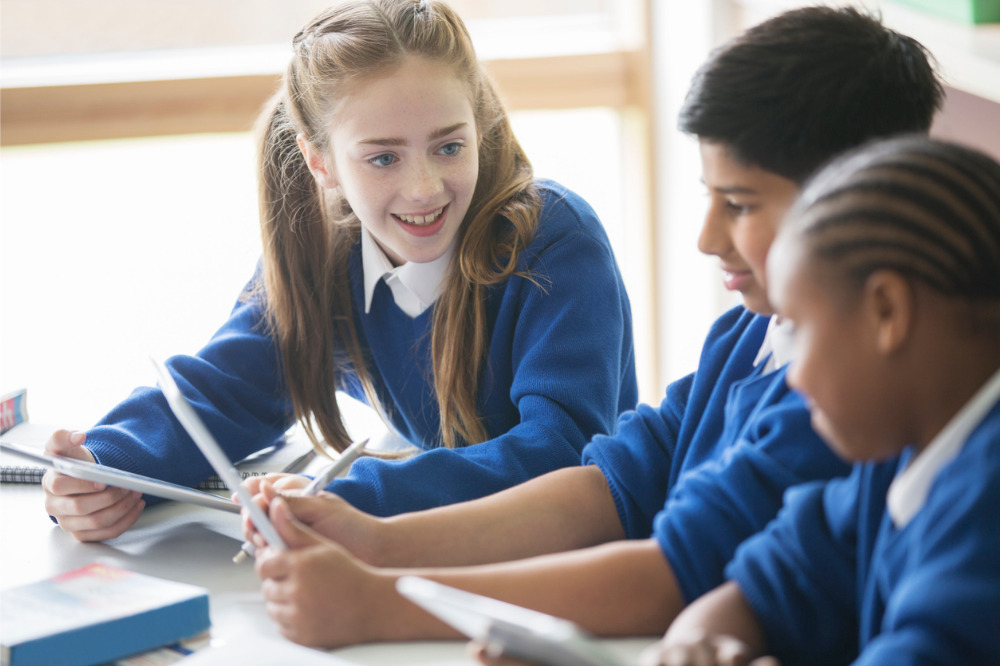
In March, a national survey revealed 20% of Australia’s high school-age students identify as having ‘low’ levels of mental wellbeing, with schoolwork, tests or grades the top driver of their anxiety and worries.
Separate research from leading school wellbeing platform Truwell has found 24% of young people in Australia are concerned about their health, with acceptable levels of hopefulness and happiness missing in 30% and 24% of students respectively.
To help offset the stress and anxiety that many students and staff are feeling, Australian charity b kinder has been taking the time to spread its kindness initiative with schools and communities across Australian and internationally.
Last year 83 schools participated in the organisation’s initiative, which involves schools teaching and valuing kindness and empathy, which a growing body of research shows are two powerful contributors to health and wellbeing.
Leading this heart-warming initiative is Danny Mayson-Kinder, who created charity flyhighbillie – now trading as b kinder – in honour of her daughter, Billie Kinder, who tragically passed away at 12-years-old.
The charity recently launched b kinder schools, “inspired by kindness and empowered by students”, ahead of b kinder day, which falls on 22nd June.
Mayson-Kinder said the initiative encourages student leadership teams to take responsibility and ownership for the culture of kindness and wellbeing within their school.
“It gives them specific responsibilities and empowers them to use their own voices and take action to make a difference in their school and community,” Mayson-Kinder told The Educator.
“Whilst this initiative has been designed for student leaders, we understand that depending on the age of your students, the amount of teacher input and support may vary.”
Mayson-Kinder said there are five kindness initiatives that form the b kinder school criteria and require student leadership teams to commit to: leading b kinder day in their school; establishing a “kindness space” within their school; demonstrating commitment to community service; creating recognition of kindness for other students; and connecting and introducing a new school or business to b kinder day.
“Signing up to become a b kinder school is simple and includes a b kinder school sign for the school gates, b kinder ambassador badges, some b kinder day resources, a one-hour professional development video for the lead teacher, detailed student information along with videos and resources to enable them to carry out the five initiatives,” Mayson-Kinder said.
One school that has seen the value of these resources is Moriah College. The school’s deputy head of wellbeing, Nicole Grauman, said b kinder is a “rich and authentic program” that helps educators embed the explicit teachings of well-being into all aspects of teaching.
“The b kinder initiative offers learning activities that provoke our students to ask questions, to ponder and explore, to stretch themselves and to see things from another's perspective,” Grauman told The Educator.
“We need to empower our children with a tool set of skills and strategies to help them develop an enriched sense of wellbeing, belonging and self-esteem.”
Grauman said the b kinder program offers learning activities that provoke students to ask questions, to ponder and explore, to stretch themselves and to see things from another’s perspective.
Summit Education Australia, which provides professional consulting services to educators and education communities across all sectors of education in Australia, has been supporting the initiative.
The organisation’s Principal Consultant, Matthew Smith, is a highly experienced independent school principal who understands the challenges facing teachers and school leaders in the current educational climate across the public, independent and Catholic sectors.
“There is nothing like a student-led project to gain traction among the whole school community,” Smith told The Educator.
“Evidence shows that students who practice pro-social behaviours benefit from improved wellbeing outcomes such as increased self-confidence, feelings of independence, higher levels of positive reciprocity in relationships and a deeper sense of connectedness with their school community.”


